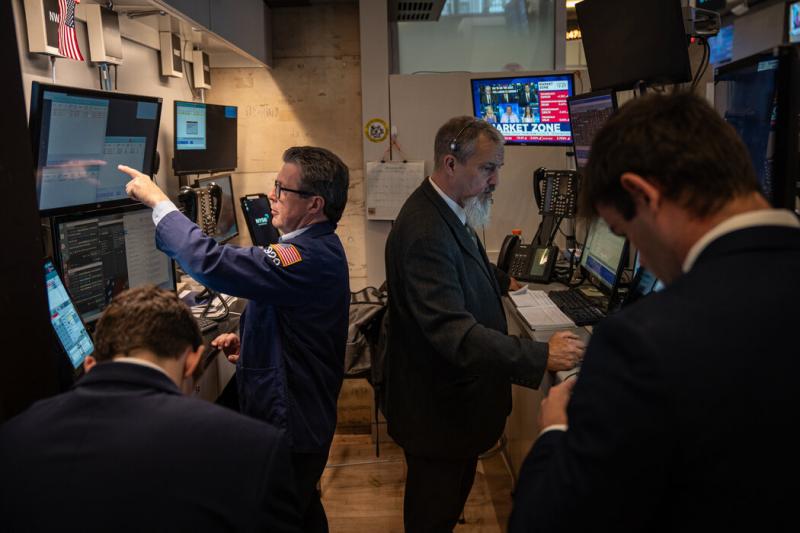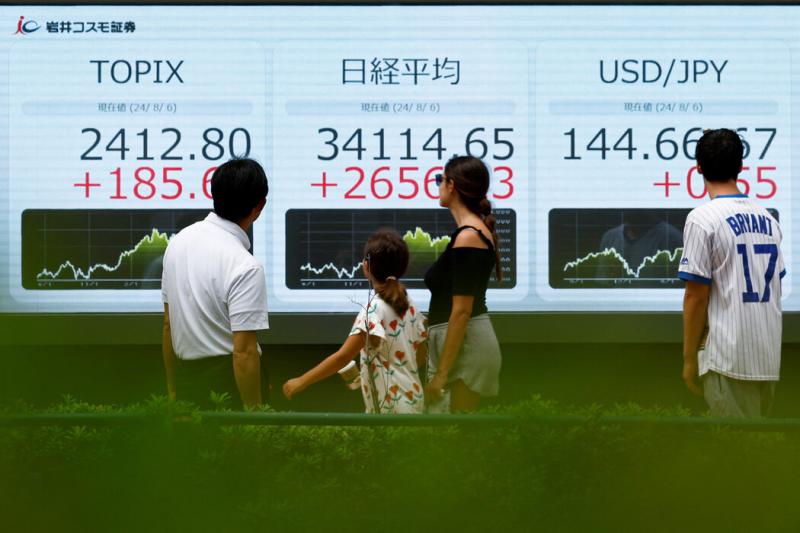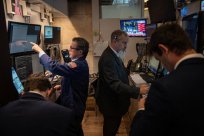
The fierce fluctuations in the market recently can be described as a living example, which shows how the pillars that look different from all over the world are linked through the financial system, and if one of the pillars falls down, the Domino card that may follow may follow, and may follow the Domino card card.effect.
The turbulence of the stock market reflects to a certain extent that people are increasingly worried that the US labor market may be hit hard, and the Fed may be too long to wait and see in terms of interest rate cuts.
But the actual situation is more complicated than this.Analysts and investors said that there are more technical reasons for selling this time.
The slow accumulation of high -risk bets, a sudden collapse of a common way of financing for such transactions, and the decision -making differences of global policy makers have played a role.Some of these factors can be traced back to a few years ago, and some have appeared recently.
The following are some key reasons for fluctuations.
Long -term low interest rates have led investors to bear more risks.
The accumulation of risks in the financial system can be partially traced back to 2008. At that time, the real estate crisis prompted the Federal Reserve to reduce interest rates sharply and maintain interest rates at a lower level for many years.This is equivalent to encouraging investors to seek rewards from higher risk bets, because the cost of lending is very low, and the cash deposits are almost no income from security assets such as currency market funds.
In the early stages of the new crown epidemic, interest rates also dropped to a level close to zero, making such transactions re -active.
As the Fed started to raise interest rates rapidly in 2022, this situation has changed, and the relatively safe return on investment becomes more attractive, and the risky bets are facing pressure.
But not all countries increase interest rates at the same time.In Japan, economic growth and inflation have been sluggish for a long time, and the Japanese central bank maintains interest rates at a level close to zero, making it an exception.
This makes the yen very cheap than other currencies. Investors have seen an opportunity: in Japan at a low cost, and then invest in high -yield investment in other parts of the world.
This investment strategy known as a contribution transaction "was once a darling of hedge funds and other investors," said Knetieian Salmon, chief investment officer of Daoming Private Wealth Company.The collapse of this strategy has also become a major factor in the recent market turmoil.

The appreciation of the yen triggered the "heavy failure" of the faculty transaction.
The Bank of Japan raised interest rates last week. This is the second interest rate hike in the past 20 years. This decision coincides with the Fed's prediction of raising interest rates soon.This reduces the spread of Japan and the United States, and the yen exchange rate has soared.
Investors outside Japan borrowed a lot of funds with yen. Economists at the Bank of China Dutch International Group estimated that since 2021, these cross -border loans have increased by more than $ 700 billion.Goldman Sachs's analyst wrote in a research report on Tuesday that the sharp appreciation of the yen has led to "a heavy failure of the trading transaction."
The sudden strengthening of the yen may also drag the profits of Japanese companies, especially those big companies that depend on exports.This caused panic among investors in the Japanese stock market, and they were worried that the strengthening of the yen would end for more than a year.According to Goldman Sachs, as of Monday, the Japanese stock market fell more than 20%in three days, the largest decline since 1950.
Many investors and analysts believe that Japan's turmoil is a catalyst that has recently sold in the global stock market, and has since been affected by investors' economic trends and other concerns.
Investors have questioned how high some stocks may rise to how high.
As the Japanese yen -based shipping transactions began to disintegrate, leading to the decline in stock prices, some investors began to re -evaluate whether the stock price of large technology companies had a fierce rebound.
In the first half of this year, the technology stocks promoted the market to rise. The increase of nearly two -thirds of the S & P 500 Index is related to a few stocks called the "Seven Giants". They are letters, Amazon, Apple, Meta, Microsoft, Nvidia and Tesla.
But this dominant position makes the market easily affected by emotion, and people doubt whether these giants can meet such high expectations.Investors are becoming more and more worried that these companies promise when they can invest in the field of artificial intelligence to bring returns.
Since the peak on July 16, the Standard 500 Index has fallen by 8.5%as of the closing of Monday. According to the data provided by the S & P Tonsen Index, more than half of the data provided by the S & P Gelast.Yu "Seven Giants".
Some influential investors have also begun to reduce investment scale.A document submitted by Berkshire Hathaway, a corporate group in Volon Buffett, showed that in the last quarter, it had reduced the billions of dollars in Apple shares held by it.
Other obscure strategies and scarce transactions have led to fluctuations in transactions.
Some investors try to explain the fierce fluctuations of the market. They also point out the role played by professional derivatives dealers. They bet on the direction of price changes, but the degree of volatility of these changes.Most of the time this year, as the stock market has steadily risen, betting low volatility is a successful strategy, but with the outbreak of selling, the strategy has been under pressure.This may force investors to further sell stocks and try to make up for losses.
The rise in volatility may also be related to the calendar.Summer holidays have led to a decline in transaction volume on Wall Street, so the slight rise and fall of the stock market may have a huge impact on market prices.
Jim Reed, a strategist of Deutsche Bank, wrote in a report in this week that "the violent fluctuations in recent days" was "seriously exaggerated in the situation of insufficient liquidity in August."




